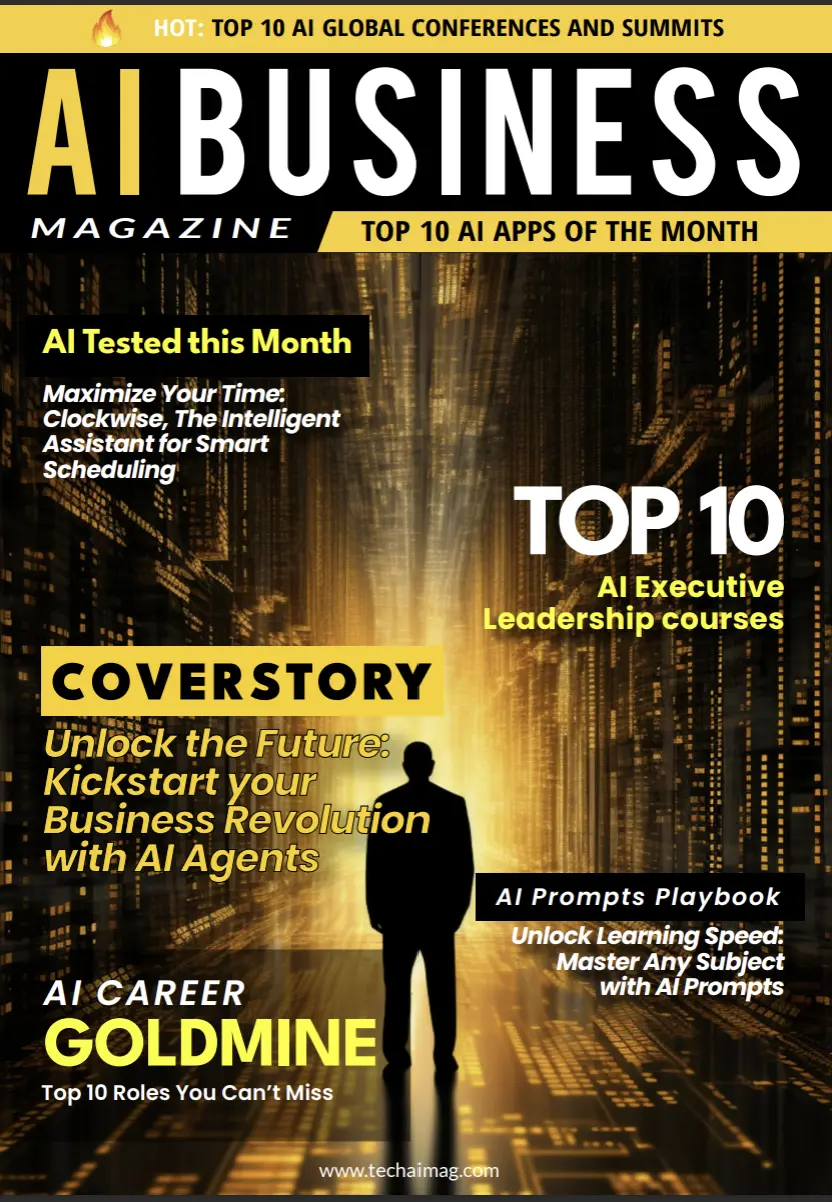The Strategic Imperative of AI Leadership
AI isn’t just another tech trend anymore. It’s reshaping how we do business at every level. As an executive, you don’t need to become a data scientist, but you do need to understand how AI can transform your organization and industry. The question isn’t whether AI matters – it’s how quickly you can develop leadership skills to harness its potential.
We’ve spent weeks researching the best executive education options out there, talking with program graduates and instructors to bring you this handpicked selection. These aren’t coding bootcamps – they’re strategic programs designed specifically for busy leaders like you who need practical insights without getting lost in technical weeds.
1. Artificial Intelligence: Implications for Business Strategy – MIT Sloan School of Management
Who should take this? For executives who want to understand the organizational impact of AI integration.
What you’ll learn:
- Strategic frameworks for evaluating AI opportunities across your organization
- Methods to align AI initiatives with core business objectives
- Ways to overcome implementation challenges and resistance to change
- Approaches to measure and communicate AI’s business impact
What makes this program stand out is its focus on the managerial implications of AI rather than technical details. You’ll develop the leadership capabilities needed to drive meaningful AI adoption throughout your organization.
Who’s teaching: MIT Sloan faculty who specialize in the intersection of technology management and organizational strategy.
Explore MIT’s AI for Business Strategy Program →
2. AI for Senior Executives – MIT xPRO
Who should take this? For C-suite leaders driving digital transformation initiatives.
What you’ll learn:
- How to identify strategic advantages that AI can bring to your organization
- Methods for building AI capabilities without disrupting existing operations
- Frameworks for prioritizing AI investments with measurable returns
- Strategies for leading organizational change in the context of AI adoption
MIT xPRO’s program excels at connecting AI capabilities to executive-level decision making. You’ll learn to speak the language of AI with confidence while maintaining focus on business outcomes.
Who’s teaching: A combination of MIT researchers at the forefront of AI innovation and experienced executives who have successfully implemented AI strategies.
Discover MIT xPRO’s AI for Senior Executives Program →
3. C-Suite Program in Digital Transformation and AI – Northwestern Kellogg School of Management
Who should take this? For senior leaders focused on innovation and growth through AI.
What you’ll learn:
- Frameworks for developing AI-driven innovation strategies
- Methods to identify growth opportunities enabled by AI technologies
- Ways to build organizational capabilities that support AI adoption
- Approaches to navigate the ethical considerations of AI implementation
Kellogg’s program stands out for its emphasis on turning AI insights into tangible business growth. You’ll work through real-world scenarios that prepare you to lead AI initiatives with confidence.
Who’s teaching: Kellogg faculty known for expertise in leadership and innovation, combined with industry practitioners who have led successful AI transformations.
Explore Kellogg’s Digital Transformation Program →
4. Leadership Program in AI and Analytics – Wharton University of Pennsylvania
Who should take this? For executives who want to leverage data-driven decision making.
What you’ll learn:
- How to translate complex analytics into actionable business insights
- Methods for building data-driven organizational cultures
- Frameworks for evaluating AI investments based on financial impact
- Strategies for overcoming resistance to data-driven approaches
Wharton’s program cuts through the AI hype with its relentless focus on quantifiable business impact. Every concept is tied directly to financial performance and competitive advantage.
Who’s teaching: Wharton professors who combine technology expertise with deep understanding of business value creation.
Discover Wharton’s AI Leadership Program →
5. Berkeley Executive Program in Digital Transformation and AI – Berkeley ExecEd
Who should take this? For leaders managing large-scale AI adoption across their organizations.
What you’ll learn:
- How to identify which parts of your business are most vulnerable to AI disruption
- Methods for establishing clear governance structures for AI initiatives
- Ways to build cross-functional teams that effectively leverage AI
- Approaches to measuring whether your AI investments are paying off
Berkeley’s program excels at bridging the gap between Silicon Valley innovation and practical business application. You’ll gain insights directly from researchers and practitioners on the cutting edge.
Who’s teaching: Berkeley faculty alongside Silicon Valley veterans who have built successful AI-driven businesses.
Explore Berkeley’s Executive AI Program →
6. Oxford Artificial Intelligence Programme – University of Oxford
Who should take this? For executives who value ethical and responsible AI implementation.
What you’ll learn:
- How to develop AI systems that balance innovation with ethical considerations
- Methods for navigating the complex regulatory landscape around AI
- Frameworks for building AI capabilities that remain transparent and explainable
- Strategies for creating compelling business cases for AI investment
Oxford’s program uniquely addresses the “should we” questions of AI implementation alongside the “how to” aspects. In a world of increasing AI regulation, this balance is crucial.
Who’s teaching: Oxford faculty with expertise in technology ethics and governance, alongside industry leaders with implementation experience.
Discover Oxford’s AI Programme →
7. AI Strategies and Applications for Leaders – Northwestern Kellogg School of Management
Who should take this? For executives looking to connect technical teams with business goals.
What you’ll learn:
- How to align technical AI work with business objectives
- Methods for bridging the communication gap between technical and business teams
- Ways to identify specific AI applications with tangible business returns
- Approaches to building organizations that can effectively leverage AI
Kellogg’s program stands out by addressing the human side of AI leadership – how to build teams, manage change, and create an AI-friendly culture. These people challenges often determine success more than technical factors.
Who’s teaching: Kellogg faculty who specialize in organizational behavior and technology management.
Explore Kellogg’s AI Strategies Program →
8. Generative AI for Business Transformation – Purdue University
Who should take this? For executives focused on leveraging the latest AI innovations.
What you’ll learn:
- How to identify opportunities for generative AI across your business functions
- Methods for evaluating when to build versus buy generative AI solutions
- Frameworks for measuring the ROI of generative AI implementations
- Strategies for responsible deployment of generative AI technologies
Purdue’s program stands out for its specific focus on generative AI applications across product development, customer experience, and operational efficiency. You’ll gain practical insights into this rapidly evolving technology.
Who’s teaching: Purdue faculty with expertise in emerging AI technologies alongside industry practitioners who have implemented generative AI solutions.
Discover Purdue’s Generative AI Program →
9. Artificial Intelligence: Business Strategies and Applications – Berkeley ExecEd
Who should take this? For innovative leaders who want to use AI to stay competitive.
What you’ll learn:
- How to develop AI strategies that align with broader business objectives
- Methods for prioritizing competing AI initiatives when resources are limited
- Ways to build organizational capabilities that support sustainable AI adoption
- Approaches to measuring and communicating AI’s business impact to stakeholders
Berkeley’s program excels in its comprehensive approach to implementation challenges. You’ll learn how to navigate the full journey from strategy to results – where most AI initiatives falter.
Who’s teaching: Berkeley Haas professors who understand business strategy alongside seasoned industry veterans who’ve led AI transformations.
Explore Berkeley’s AI Business Strategies Program →
10. Executive Program in General Management – MIT Management Executive Education
Who should take this? For leaders who need a holistic understanding of AI’s impact on management.
What you’ll learn:
- How AI is reshaping management practices across functions
- Methods for developing cross-functional AI strategies
- Frameworks for integrating AI into core business processes
- Approaches to building management capabilities for an AI-enabled organization
MIT’s program provides a broad perspective on how AI affects all aspects of general management. You’ll develop the comprehensive understanding needed to lead organization-wide AI initiatives.
Who’s teaching: MIT Management faculty who bring together expertise in leadership, strategy, and technology management.
Discover MIT’s Executive Program in General Management →
Conclusion
Consider your own leadership journey – which program aligns with your specific challenges? Many executives find value in starting with a broader program and then diving deeper into specialized topics as their AI initiatives mature.
Don’t wait for perfect clarity before taking action. The competitive landscape is shifting rapidly, and the organizations that develop AI leadership capabilities now will have a significant head start. Which path will you choose to develop your AI leadership edge?







